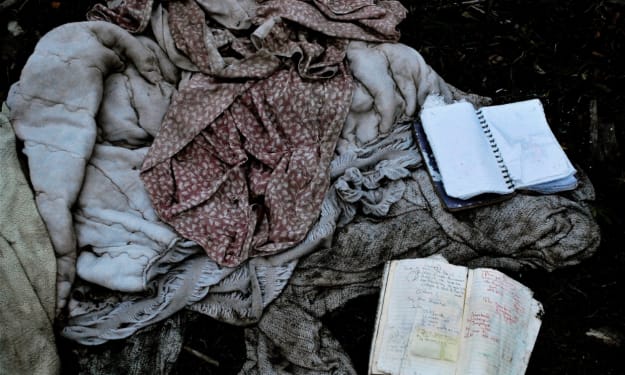
Naturally, we are inclined to draw near to others. Even making small efforts of contact with another is seemingly innate, holding a loved one’s hand, leaning on a shoulder for comfort, or simply a shared and warm embrace. Intimate relationships are considered an essential component in the composition of a happy life. The mutual dependency of friends, family, and romantic partners provides a respite in times of heartache or grief, often encouraging feelings of comfort. Many of us go about our daily lives without thinking twice about whether our loved ones will always be around. When we need reassurance we can pick up a phone and call a friend and procure console. Be that as it may, life for those living with a condition called "Autophobia" from the Greek word “Auto” meaning ‘self’ — suffer from the unusual and certain fear that they will be abandoned. People who suffer from Autophobia struggle to maintain deep personal connections, resulting in a perpetual state of grievance, due to the effects of this condition — which include: depression, crippling fear of intimacy, and low self-esteem.
The fear of intimacy stems from the idea that the closer one becomes emotionally to another, the more vulnerable they will be, and in that vulnerability the other party will observe their flaws and as a result of these shortcomings they will leave. This fear prompts a guarding of self, causing one to sabotage relationships prior to intimacy — due to previously negative experiences. To illustrate, at an early age we learn that fire is dangerous. The sensation of being burnt when we touch something hot becomes synonymous with flame itself. This is because the orientation of a human’s biological makeup triggers a survival response. As we know, the body will instinctively pull away from the source of danger. Equally, when one is hurt in a relationship, the idea of intimacy will be associated with this experience. Thus, when those afflicted with Autophobia find themselves developing attachments to another, they begin to feel the warmth of the flame of intimacy, pulling away instinctively from the source of heat. Intimacy to the afflicted, is seemingly flame to the exposed and susceptible skin.
Furthermore, Autophobia causes loneliness. Over time, that deficit for human connection becomes a source of depression which only aids in further isolation. Depression leads the distressed to avoiding social settings, interaction with friends, and in severe cases completely withdrawing from the outside world. Depression impacts people in multiple ways, such as: change in appetite or weight, exhaustion, and fatigue. Even more, the depressed will lose interest in things they once took pleasure in, as well as a growing ineptitude for concentration. This ritualistic depression becomes a place of safety — drawing solace from the familiar patterns of recurrent gloom, those suffering from Autophobia seldom desire balance, finding a daunting amount of emotional risk outside of their melancholic comfort zone. This continued alienation and consistent affirmation of safety causes dissention in personal relationships — for this reason, a weak support system is usually developed as a result, which concurrently cultivates low self-esteem.
Those with Autophobia explicitly believe that they are not good enough for anyone. This low self-esteem is only solidified by a significant lack of moral support, as friends and family disperse due to the combination of isolation from long-time connections and the mental constraints of depression. Sufferers of Autophobia view themselves as though they are a ship with holes in it. Why would anyone jump in? Of course, it'll sink. Amée LaTour (Graduated from Marlboro College in Vermont with a bachelor's degree in philosophy and politics) explains self-esteem in her article "8 Common Causes of Low Self-Esteem": “Self-esteem is simply how you feel about yourself and how you judge your worth. This evaluation has a profound impact on the choices you make since it determines, to a great extent, what you consider yourself capable and worthy of doing.” Because of this, our measure of self dictates much of our decision making, by the same token, those with Autophobia struggle to break negative thought patterns, which reinforces a derogatory belief about themselves. Ultimately resulting in a mindset that is ever disappointing and generally pessimistic.
In conclusion, people who have Autophobia are seen as difficult, cold, and inaccessible. The stigma they live behind is entirely encompassing of personality. They struggle to be seen as more than just their diagnoses. That being the case, we can hope that someday we will live in a world where mental illness is regarded with the same relevance that visibly physical traumas receive, and that someday, sufferers of Autophobia will be understood beyond their illness — infirmed, yes, but only human.
"It was that night I discovered that most things you consider evil or wicked are simply lonely, and lacking in the social niceties. " (Big Fish, 2003)
About the Creator
Sam Sapien
writer. i believe there's power in words, power enough to foster compassion in others.
•"it's chaos -- be kind"•






Comments
There are no comments for this story
Be the first to respond and start the conversation.